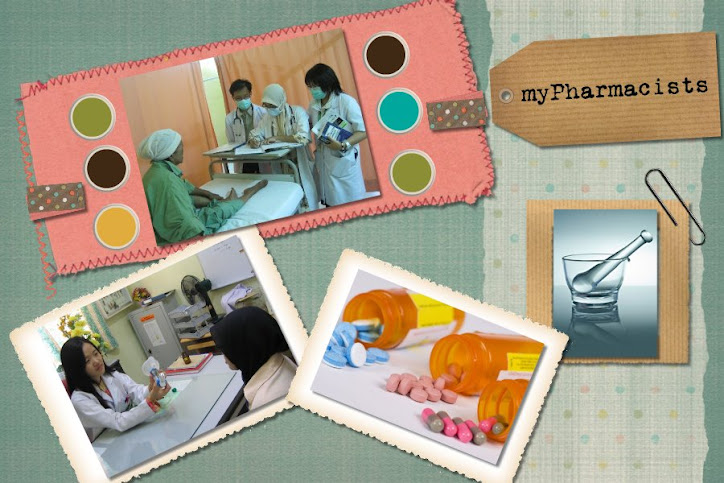Monday, September 6, 2010
Lessons from HPAIR Part II
In his seminar on Asia's Entrepreneurship Ecosystem, the interesting point brought up by Dr. Tan Wee Liang (Associate Professor of Entrepreneurship and Law at Singapore Management University) that got me thinking was 'the entrepreneurship question'. Entrepreneurship focuses on creativity, intervention and innovations in all walks of life and enterprises. It does not necessarily mean that you need to start an enterprise to be called an entrepreneur. People who work within companies and show entrepreneurial spirit is no less an entrepreneur.
The net outcomes of entrepreneurship are value creation and wealth creation. Wealth is not the same as profits-if you have helped somebody and and you feel great about that (you do not charge anything), that is wealth creation. Indeed, I am sure the pharmacists in Hospital Kuching who 'innovated' a spacer device from the normal saline drip bottle for patients who can't afford the Aerochamber, didn't mind walking to-and-for to the ward to get the right measurement of patient's mouth, trimming the mouth of the bottle etc. in order to ensure a tight fit for patients.
[Note for the unitiated: patients with asthma or chronic obstructive pulmonary disease who are on metered dose inhalers may require Aerochamber to ensure efficient delivery of drug since they (especially the elderly) have problem with coordination-pressing the canister and inhaler the drug at the same time]
Some of us may have big dreams we wish to pursue, like starting a pharmaceutical company eventually or being a pharmaceutical scientist in drug discovery and delivery. The pharmaceutical industry has a rich history of entrepreneurship. As shared with us HPAIR delegates in the seminar on Sustainable Entrepreneurship-A Case Study from the Pharmaceutical Industry by Dr. James Garner (Vice President & General Manager, Takeda Clinical Research Singapore), it dates back to the time of Sir Alexander fleming in deriving penicillin and the eventual implementation of large-scale production of penicillin by Howard Florey and Ernst Chain.
In drug development, only 1 in 500 compounds (which have potential to become drug) make it to phase III of the clinical trial; and only 3 in 10 new drugs ever return their cost of development! Due to changing disease pattern and pandemic outbreak, there is urgent call for consistent delivery of transforming innovation in the pharmaceutical industry.
For us fledgling pharmacists who are in the compulsory service, before we get to be master of our own destiny (be it in clinical, retail pharmacy, sales and marketing, regulatory affairs or drug design etc), let us embrace the innovative spirit in our effort to enhance patient care. I have seen simple gestures by the pharmacists that go a long way towards improving patients' compliance and understanding in their treatment, such as the meticulously compiled pictures (together with captions in Malay, English and Chinese) of food/supplements that patients should not consume while on warfarin; to effort which improves the service of the pharmacy department, such as developing a software for the calculation of total parenteral nutrition. Always think 'What else can I do for this patient?'
So my dear fellow pharmacists, let's be a facilitator of change in your workplace!
The net outcomes of entrepreneurship are value creation and wealth creation. Wealth is not the same as profits-if you have helped somebody and and you feel great about that (you do not charge anything), that is wealth creation. Indeed, I am sure the pharmacists in Hospital Kuching who 'innovated' a spacer device from the normal saline drip bottle for patients who can't afford the Aerochamber, didn't mind walking to-and-for to the ward to get the right measurement of patient's mouth, trimming the mouth of the bottle etc. in order to ensure a tight fit for patients.
[Note for the unitiated: patients with asthma or chronic obstructive pulmonary disease who are on metered dose inhalers may require Aerochamber to ensure efficient delivery of drug since they (especially the elderly) have problem with coordination-pressing the canister and inhaler the drug at the same time]
Some of us may have big dreams we wish to pursue, like starting a pharmaceutical company eventually or being a pharmaceutical scientist in drug discovery and delivery. The pharmaceutical industry has a rich history of entrepreneurship. As shared with us HPAIR delegates in the seminar on Sustainable Entrepreneurship-A Case Study from the Pharmaceutical Industry by Dr. James Garner (Vice President & General Manager, Takeda Clinical Research Singapore), it dates back to the time of Sir Alexander fleming in deriving penicillin and the eventual implementation of large-scale production of penicillin by Howard Florey and Ernst Chain.
In drug development, only 1 in 500 compounds (which have potential to become drug) make it to phase III of the clinical trial; and only 3 in 10 new drugs ever return their cost of development! Due to changing disease pattern and pandemic outbreak, there is urgent call for consistent delivery of transforming innovation in the pharmaceutical industry.
For us fledgling pharmacists who are in the compulsory service, before we get to be master of our own destiny (be it in clinical, retail pharmacy, sales and marketing, regulatory affairs or drug design etc), let us embrace the innovative spirit in our effort to enhance patient care. I have seen simple gestures by the pharmacists that go a long way towards improving patients' compliance and understanding in their treatment, such as the meticulously compiled pictures (together with captions in Malay, English and Chinese) of food/supplements that patients should not consume while on warfarin; to effort which improves the service of the pharmacy department, such as developing a software for the calculation of total parenteral nutrition. Always think 'What else can I do for this patient?'
So my dear fellow pharmacists, let's be a facilitator of change in your workplace!
Subscribe to:
Post Comments (Atom)






No comments:
Post a Comment